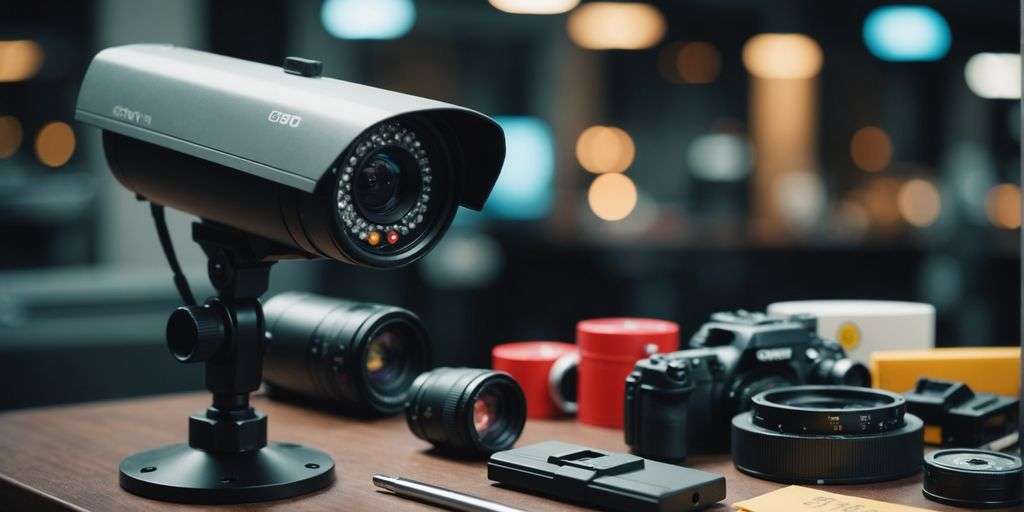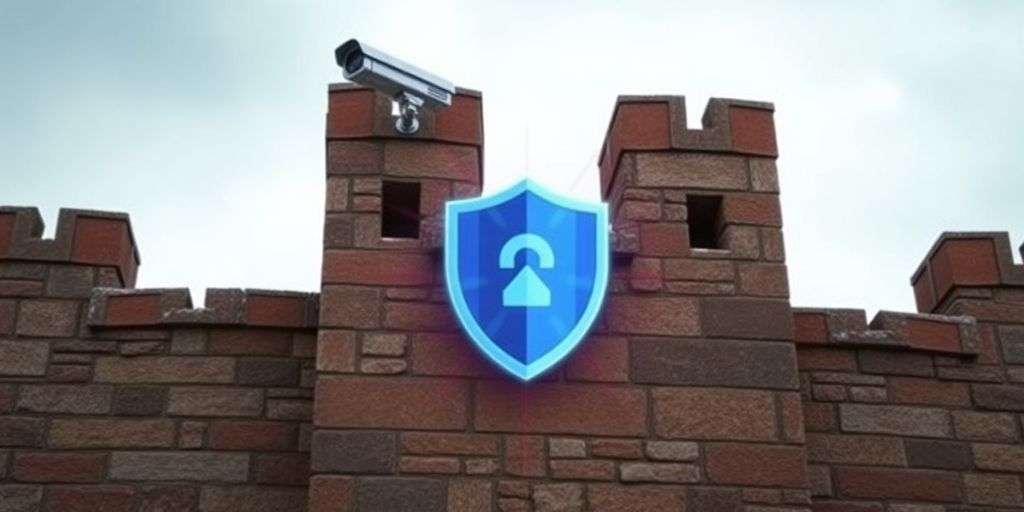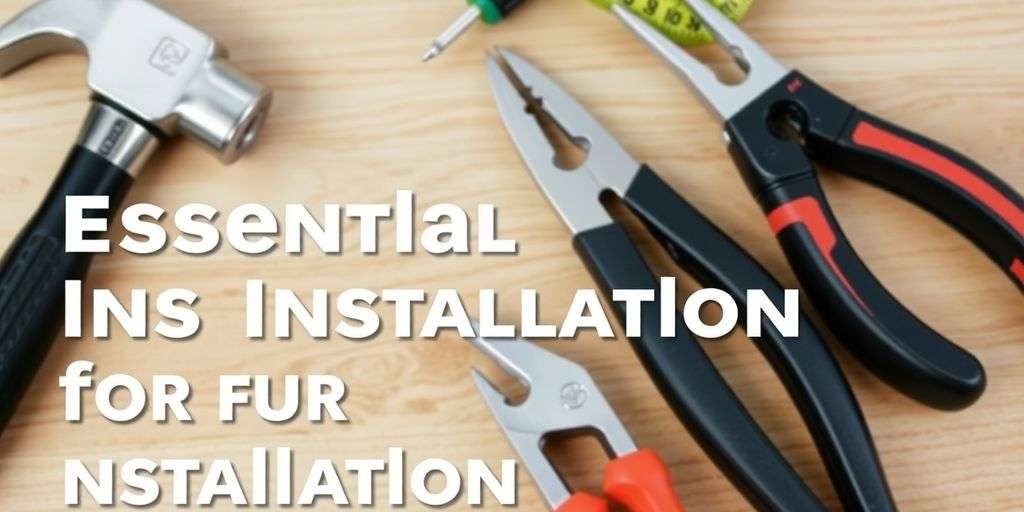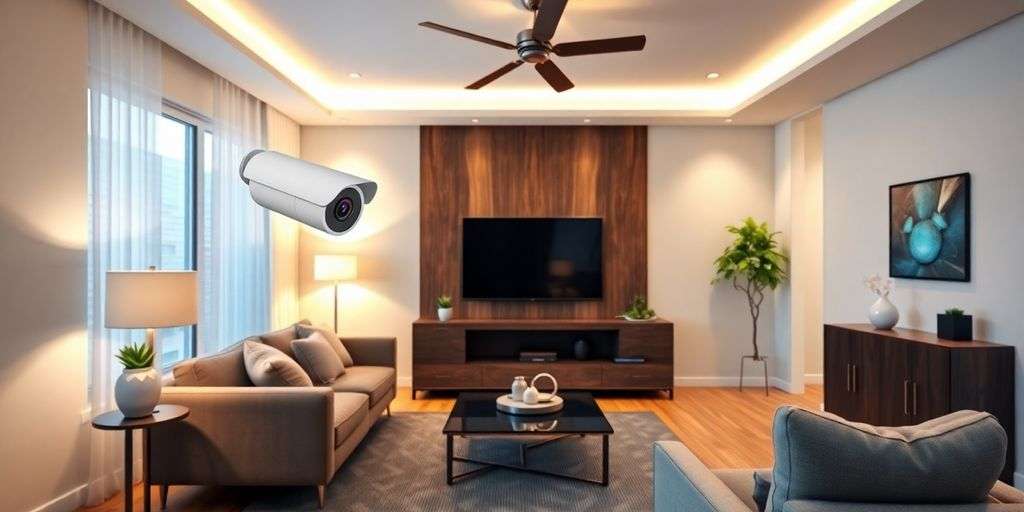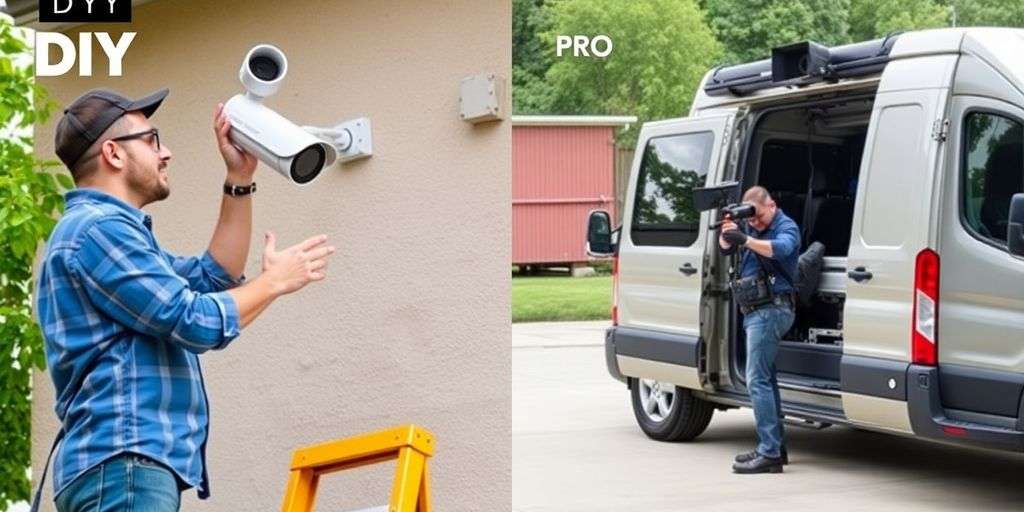Factors Affecting CCTV Installation Costs
Type and Quality of Cameras
The type and quality of cameras you choose significantly impact the overall cost of your CCTV system. High-definition cameras with advanced features like night vision and motion detection are generally more expensive than basic models. Investing in high-quality cameras can provide better security and clearer footage.
Installation Complexity
Installation complexity is another crucial factor. If your property requires extensive cabling, concealed wiring, or cameras mounted at great heights, the installation will be more complicated and costly. Properties with simpler layouts will generally incur lower installation costs.
Additional Features and Accessories
Additional features such as remote access, cloud storage, and integration with other security systems can also add to the cost. Accessories like extra cables, mounts, and power supplies should be factored into your budget as well.
When planning your CCTV installation, consider all these factors to create a realistic budget that meets your security needs.
DIY vs Professional CCTV Installation
Choosing between DIY and professional installation for your CCTV system ultimately comes down to your technical skills, security priorities, budget, and the complexity of the installation. While DIY offers cost savings and flexibility, professional installation ensures expertise, reliability, and optimal performance. To protect your property effectively and gain peace of mind, it’s crucial to make a decision that aligns with your unique needs and circumstances.
Pros and Cons of DIY Installation
DIY (Do It Yourself) installation of a CCTV system can be an attractive option for individuals who have a knack for technology and a willingness to invest time and effort.
Pros of DIY Installation:
- Cost-Effective: DIY installation can be cost-effective, as it eliminates the need to hire a professional installer. You can potentially save money by purchasing the equipment and setting it up yourself.
- Flexibility: You have the freedom to choose the equipment and install it at your own pace.
- Learning Experience: Installing the system yourself can be a valuable learning experience, enhancing your technical skills.
Cons of DIY Installation:
- Time-Consuming: DIY installation can be time-consuming, especially if you lack experience.
- Technical Challenges: Without proper knowledge, you may face technical challenges that could affect the system’s performance.
- Limited Support: You may have limited access to professional support if issues arise.
Benefits of Professional Installation
Professional installation of a CCTV system involves hiring a trained technician or company to set up and configure the equipment.
Pros of Professional Installation:
- Expertise and Experience: Professional installers are trained, experienced, and skilled in configuring CCTV systems. They know the best camera placement, wiring techniques, and how to optimise the system for your specific needs.
- Reliability: Professional installation ensures that the system is set up correctly and functions reliably.
- Warranty and Support: Many professional installers offer warranties and ongoing support, providing peace of mind.
Cons of Professional Installation:
- Higher Cost: Professional installation can be more expensive due to labour fees.
- Scheduling: You may need to schedule an appointment, which could delay the installation process.
Cost Comparison
When comparing the costs of DIY and professional installation, consider the following factors:
| Factor | DIY Installation | Professional Installation |
|---|---|---|
| Equipment Costs | Varies (usually lower) | Included or higher |
| Labour Costs | None | Higher |
| Time Investment | High | Low |
| Technical Challenges | Possible | Minimal |
| Support and Warranty | Limited | Comprehensive |
Whether you decide to embark on a DIY project or hire a professional, the key is to ensure that your CCTV system meets your security needs and provides reliable performance. A security guru offers premier security solutions including clearview fencing, CCTV camera installations, electric fence installations, carports, alarm systems, security beams, security gates tailored to your needs.
Budgeting for Your CCTV System
Estimating Equipment Costs
When planning your CCTV system, it’s essential to understand the costs of various components. Here’s a quick overview of typical expenses:
| Component | Cost Range (KES) |
|---|---|
| Basic Security Camera | 8,000–15,000 |
| 4K High Resolution Camera | 15,000–35,000+ |
| Professional-Grade PTZ Camera | 35,000–150,000 |
| 32 Channel Network Video Recorder | 150,000–350,000 |
| 128+ Channel Enterprise NVR | 400,000+ |
| Cables and Accessories | 5,000+ |
| Software and Apps | Monthly or Annual Fees |
| Installation Services | 5,000+ per camera |
Labour and Installation Fees
The cost of labour and installation can vary significantly based on the complexity of the setup and the number of cameras. Professional installation ensures optimal performance and can prevent future issues. However, it comes at a price, typically starting from KES 5,000 per camera.
Financing and Payment Options
To make advanced systems more accessible, many leading CCTV installation companies offer financing options like payment plans, rentals, and leasing arrangements. This approach helps avoid large upfront costs, making it easier to invest in a quality security system.
Setting a realistic budget is crucial. Balancing your security needs with your financial capacity ensures you get the best value without overspending.
Maximising Value from Your CCTV Investment

Choosing the Right System for Your Needs
Selecting the right CCTV system involves evaluating your risk factors, visibility goals, and response requirements. This ensures the smart functionalities available through modern video surveillance platforms are useful for your premises. With a little forethought and planning, a CCTV system can be a valuable asset for your home or business.
Maintaining Your CCTV System
Consistent maintenance of your CCTV system is crucial for sustained performance. Regular checks and servicing help in monitoring facilities round the clock. Investing in proactive and reactive servicing ensures the system’s reliability and longevity.
Upgrading and Expanding Your System
As your needs grow, expanding your existing CCTV network becomes essential. This includes adding more cameras or upgrading to newer technologies. Proper guidance on operating the system effectively, such as managing recorded footage and utilising remote access features, ensures you get the most out of your security investment.
Regular maintenance and timely upgrades can significantly enhance the effectiveness of your CCTV system, providing peace of mind and enhanced security.
Conclusion
In the end, setting up CCTV cameras at home is a smart move for keeping your family and property safe. Whether you choose to do it yourself or hire a professional, understanding the costs involved helps you make the best choice for your needs and budget. Remember, the best system is one that fits your security needs without breaking the bank. So, take your time, plan well, and you’ll have peace of mind knowing your home is secure.
Frequently Asked Questions
What factors influence the cost of CCTV installation?
The cost of installing CCTV cameras can vary based on the type and quality of cameras, the complexity of the installation, and any additional features or accessories you choose. For example, high-resolution cameras and advanced features like night vision or motion detection can increase the overall cost.
Is it cheaper to install CCTV cameras myself or hire a professional?
Doing it yourself can save you money on labour costs, but it requires some technical skills and time. Hiring a professional ensures the system is installed correctly and efficiently, which can ultimately provide better security. The choice depends on your budget, skills, and the complexity of the installation.
How can I budget for a CCTV system?
To budget for a CCTV system, start by estimating the cost of the equipment you need. Then, consider any labour or installation fees if you plan to hire a professional. Also, explore financing or payment options that can help spread out the cost over time. This way, you can find a system that fits your security needs and budget.

